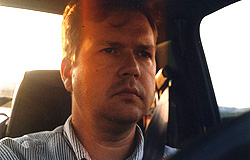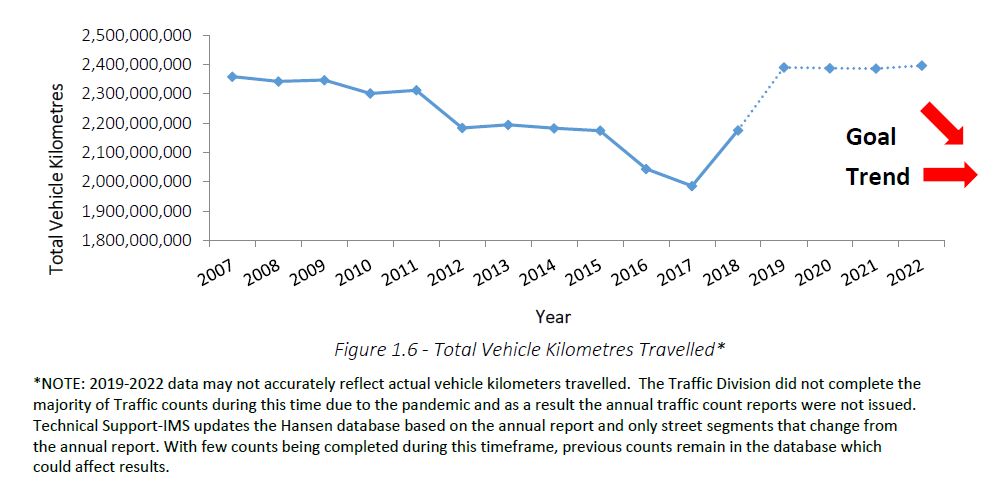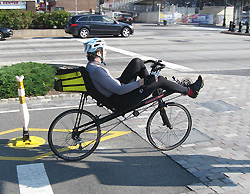Single Occupancy Vehicle Trips
Objective A8: Reduce the Number of Single-Occupancy Vehicle Trips of Staff and Residents
The following actions are needed to complete this objective:
- Create education campaigns to:
- Encourage staff and residents to get out of their cars for at least one week
- Promote "flex" hours to allow for carpooling to work
- Promote benefits of a car-free lifestyle: better health, lower costs.
- Participate in Open Streets events to promote alternative methods of transportation.
- Promote the Transit Windsor Corporate ValuPass.
- Promote use of existing active transportation infrastructure and its expansion.
- Direct promotional activities toward improved health and quality of life through increased physical activity. Promote recommended 30 minutes of physical activity per day in bouts of 10 minutes or more.
- Recruit and identify sponsor funding to reinstitute free bus rides on poor air quality days.
- Investigate partnerships with industry and surrounding municipalities for City car pool vans and parking.
- Continue to provide incentives to City staff to leave their cars at home such as discounted bus passes and end-of-use facilities.
- Support alternative work styles such as telecommuting, or working from home one day per week to reduce greenhouse gas emissions.
These indicators show the progress the City is making to achieve this objective:
- Participant in Open Streets
- Total vehicle kilometres travelled
Vehicle Kilometres Travelled Indicator

Among all the various uses of transportation, routine travel between home and work or school puts the greatest demand on roads and fuel use. In Windsor, 88.2% of commuting trips are made using a car. The greater the number of kilometres that are driven, the higher the impact on air quality and congestion, both of which impact the health of residents and the environment.
An increase in commuting mileage is an indicator of urban sprawl, which in South-West Ontario generally means that roads and low-density housing developments are encroaching into natural areas, as well as quality farmland. Total vehicle mileage is an indicator of Windsor's dependence on fossil fuels. As well, the use of these fuels, such as gasoline and diesel add carbon dioxide to the atmosphere and contribute to climate change.
How are we doing?

As illustrated in the figure above, the total vehicle kilometres travelled by Windsor residents had a steady decrease from 2007 to 2017 with notable increases since 2018. The data is not entirely reliable as noted.
Note: 2019-2022 data may not accurately reflect actual vehicle kilometres travelled. The Traffic Division did not complete the majority of Traffic counts during this time due to the pandemic and as a result the annual traffic count reports were not issued. Technical Support-IMS updates the Hansen database based on the annual report and only street segments that change from the annual report. With few counts being completed during this timeframe, previous counts remain in the database which could affect results.
What is the City of Windsor doing to reduce the total vehicle kilometres driven?
- Increasing Transit Windsor's ridership is an objective of the City of Windsor that would help to reduce the total mileage of private automobiles in Windsor.
- During the repaving of streets, including Wyandotte Street West and Erie Street, sustainable street design practices were incorporated. Shared-lane markings, or Sharrows indicating that cyclists and motorists share lanes for travel have been added to encourage cycling. An increase of benches and lighting was included to promote safety and walkability.
- The City has partnered with the Waterfront Regeneration Trust to extend the Waterfront Trail through the City of Windsor, connecting to the Town of Tecumseh to the east and the Town of LaSalle to the west, adding an additional 620 kilometres to the trail. See maps of the waterfront trails.
- The City administers the Crossing Guard Program, responsible for the safety of elementary school children who walk to and from school by crossing them safely across intersections.
- We provide in-kind support in partnership with the Health Unit for the Active & Safe Routes to School program.
- 17 kilometres of multi-use trail will be incorporated into the Right Honourable Herb Gray Parkway. This trail ties in with existing neighbourhood trails to promote active transportation. See Parkway trail map.
- Bicycle travel is also a substitute for automobile trips in some instances, in particular for commuting over short to medium distances. The City has adopted the following plans that contain initiatives to increase bicycle travel:
- Bicycle Use Master Plan (BUMP)
- Riverside Drive Vista Improvement Plan
- Provincial/Division Road Environmental Assessment
- South National Street Multi-use Trail
- Commute Ontario
- The City encourages staff to participate in various initiatives, such as Bike to Work Month, Walktober and others. We provide various tools and tips to help them achieve success in these initiatives, for example:
- Infographic on Walking
- "Walktober" Calendar
- Facts about Walking
- 10 Benefits of Walking Everyday
- Step Conversion Chart
- The City encourages students to use active transportation as much as possible in their commutes to and from school:
What can you do to reduce the total vehicle kilometres driven?

The 2016 Canada Census included questions about how people get to work. It found that the automobile was by far the preferred means of commuting in Windsor.
- Car: 88.2%
- Bike/walk: 5.6%
- Public transit: 5.1%
- Other: 1.0%
There are many options available that would allow residents of Windsor to reduce the number of cars on the road and the total distances driven. For drivers, such options include:
- Carpooling
- Telecommuting, whereby some employers allow staff to work from home during one or more days per week
- Selecting a place of residence in a neighbourhood that is within a short distance to work, shopping and other services
- Combining errands into a single excursion by car instead of several separate trips
Other options include:
- Riding public transit
- Bicycling
- Walking
For more information on Environmental Initiatives
For general information, contact 311. For detailed inquiries, call 519-255-6100 ext. 6127.Email: emp@citywindsor.ca
